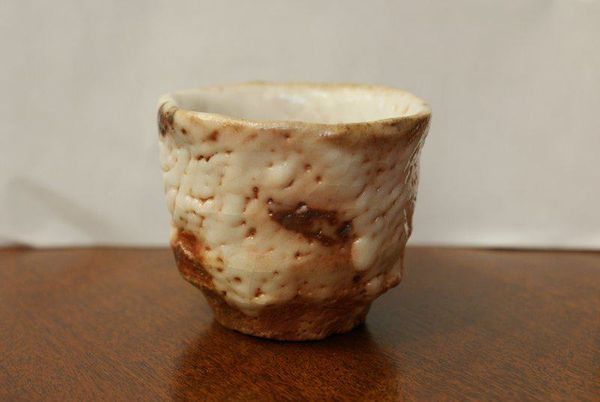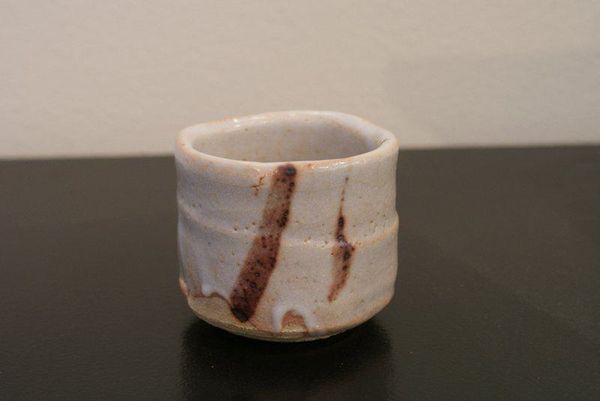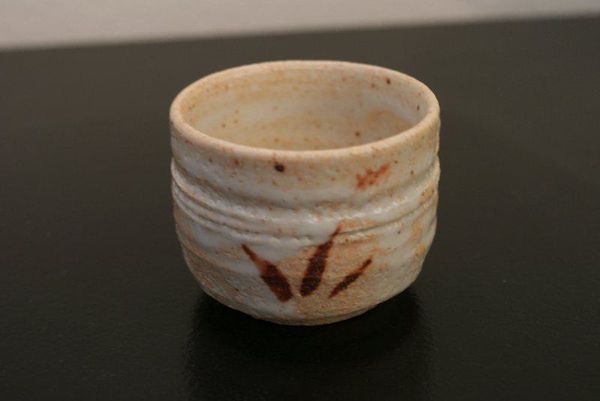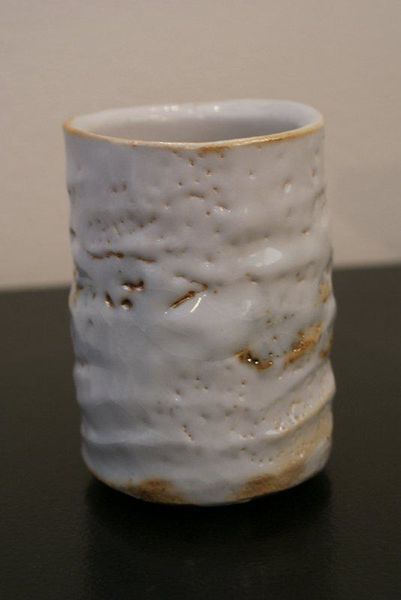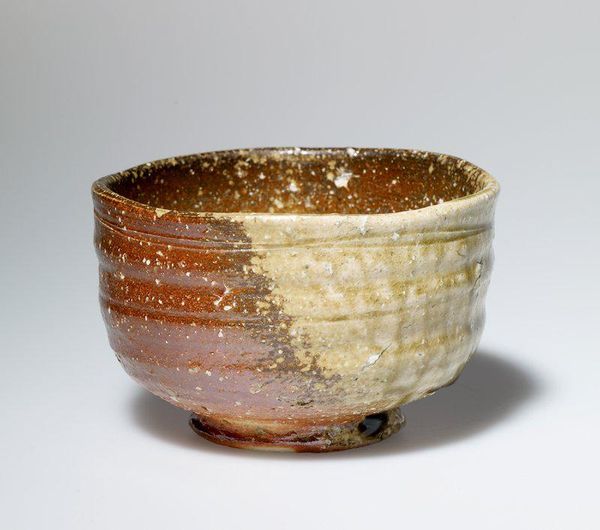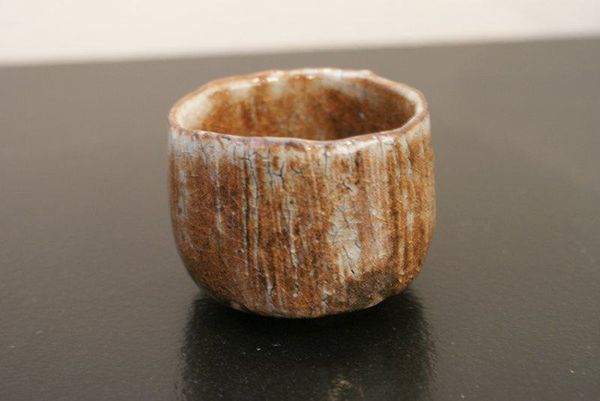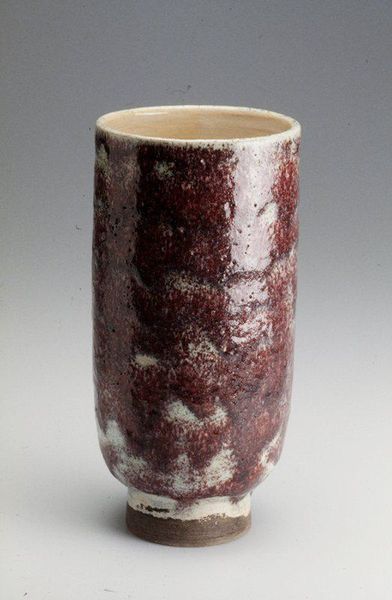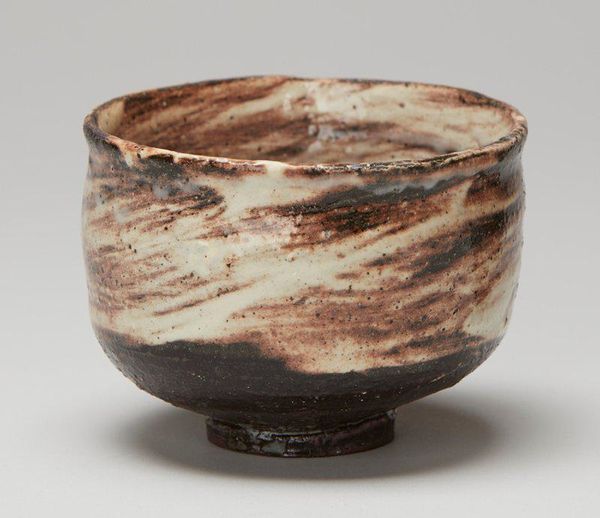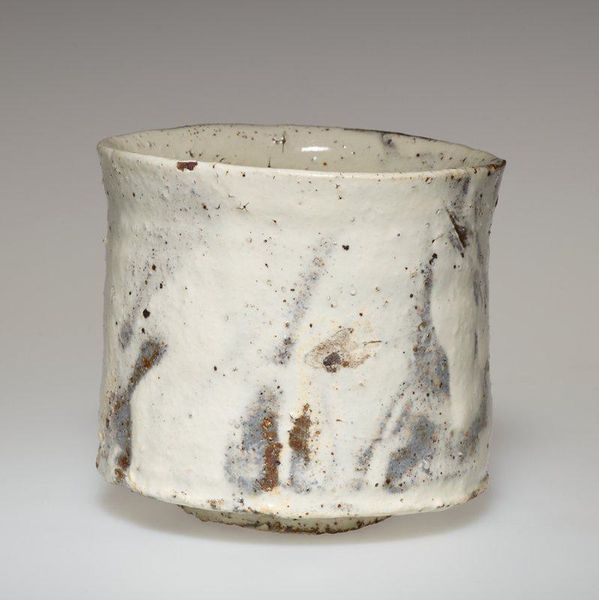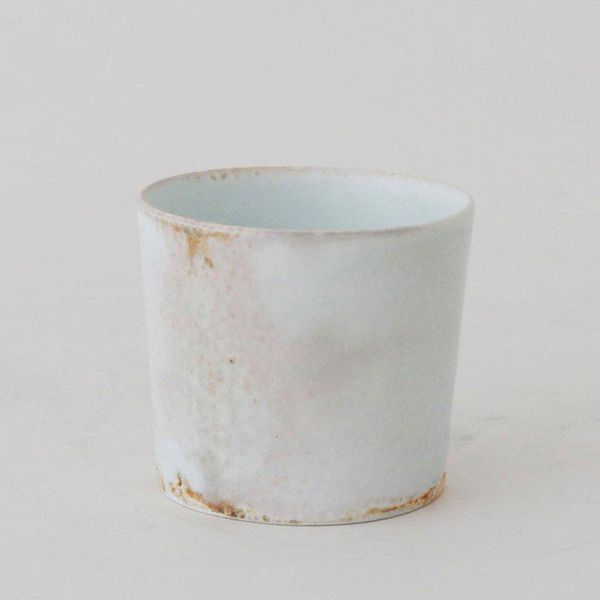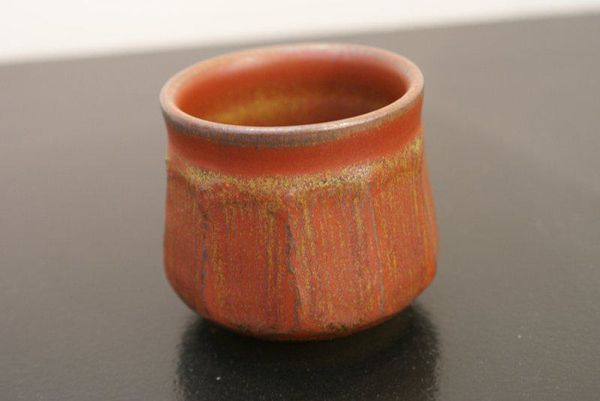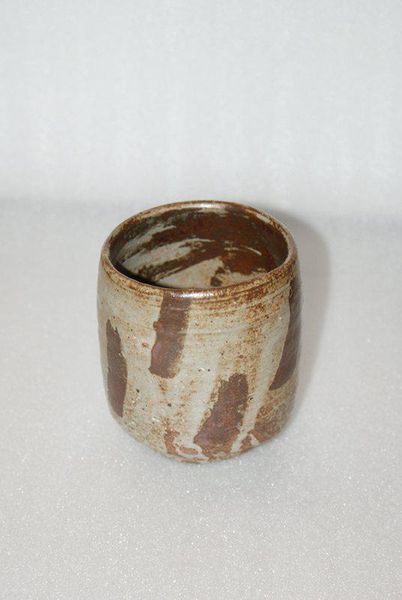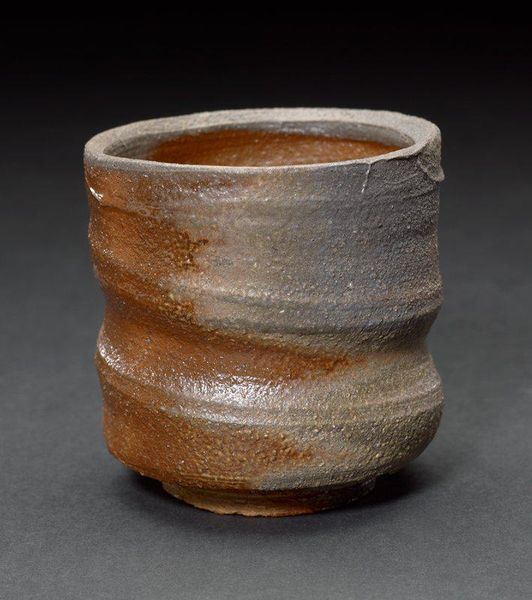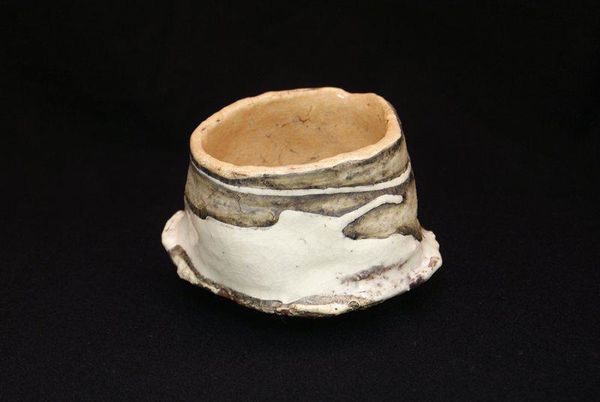
ceramic, earthenware
#
asian-art
#
ceramic
#
earthenware
#
stoneware
#
earthenware
Dimensions: 3 3/8 × 2 15/16 × 3 in. (8.57 × 7.46 × 7.62 cm)
Copyright: No Known Copyright
This is a cup, a 'yunomi,' made by Hori Ichirō, a Japanese artist born in 1952. It reflects a tension in Japanese art between the impulse to innovate and the deep respect for tradition. The yunomi form itself has a long history, traditionally used for informal tea ceremonies or everyday tea drinking. But Hori’s choice of Bizen-style stoneware, known for its earthy tones and unglazed surface, connects to the specific cultural geography of Okayama prefecture. The rough texture and the unpredictable patterns created during firing are celebrated, reflecting an aesthetic valuing naturalness over perfect symmetry. Looking at its cultural and institutional context, we might consider how the mingei folk art movement, which championed handmade crafts against industrialization, might have influenced Hori. To understand this work further, we can look at publications and museum collections dedicated to Japanese ceramics. By situating the yunomi within these histories, we start to see how it engages with and diverges from established norms, demonstrating the dynamic relationship between artist, tradition, and society.
Comments
No comments
Be the first to comment and join the conversation on the ultimate creative platform.
